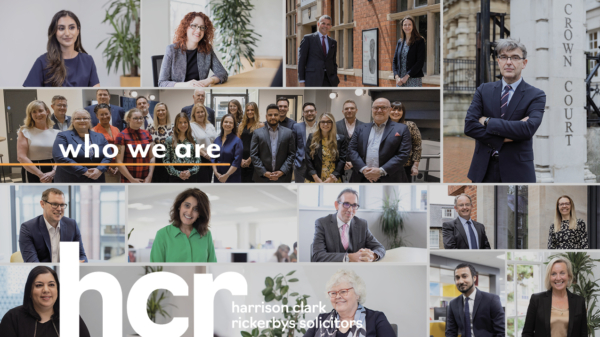

In the evolving landscape of Limited Liability Partnerships (“LLPs”), one bold question stands out—can technical expertise alone sustain your role as a Partner?
The illusion of technical mastery
Aspiring Partners often believe that mastering the technical aspects of their field is the ultimate key to success. Although well-intentioned, this belief neglects a critical element of leadership in LLPs—people management. Elevating highly successful technical individuals to Partners without the necessary leadership skills and training is like handing them the keys to a car with an empty fuel tank. They have the skills to drive but lack the resources to reach their destination.
Why credibility as a leader is everything
Credibility isn’t just a nice-to-have trait; it’s the foundation for effective leadership. Simon Sinek, renowned for his work on leadership, emphasises the need for authentic leadership over technical prowess. “Trust is built on telling the truth, not telling people what they want to hear,” he asserts. Credibility allows partners to earn trust and influence, serving as the bedrock for all leadership actions and decisions. After all, the primary asset of any business are its people! Why, then, wouldn’t leaders invest in the required skills that allows them to positively leverage that asset? Or is being an accidental leader sufficient?
The art of self-awareness
Self-awareness in leadership is akin to having a compass in uncharted territory. Leaders who listen to understand rather than respond, foster environments of trust and collaboration. Andre de Ruyter, the former CEO of Eskom, demonstrated the power of listening in his tenure, transforming a trust-deficient organisation into a more cohesive entity. He managed to do this even though he inherited the South African state-owned utility company that was beset with accusations of corruption and state capture. He was a proactive leader – boots on the ground, get in the trenches with the people and listen.
This approach is vital in LLPs, where varied personalities and professional egos abound. Listening is not a passive skill; it’s an active, intentional practice that can redefine your relationship with colleagues and clients alike.
The problem-solving toolkit
Great leaders are great problem solvers. Yet, the complexity of LLP structures demands a diversified toolkit capable of addressing the myriad of challenges unique to professional services firms. Hubert Joly, the former CEO of Best Buy, transformed the company by focusing on empathy and problem-solving, proving that understanding human behaviour is as critical as market analysis. One of the most underutilised tools is that of striving to continuously ask great questions. Contrary to popular belief leaders do not have to have all the answers. By asking great questions leaders are getting those they lead to think and thinking leads to those we lead becoming much better problem solvers. Give me a room full of problem solvers before a room full of highly skilled technicians any day.
In LLPs, leaders need tools tailored for resolving conflicts, negotiating partnerships, and managing diverse teams. These skills often surpass the value of technical knowledge and directly contribute to the firm’s financial success.
The continuous upskilling mindset
Leadership is a continuous process, not a destination. Leaders must remain dynamic, perpetually enhancing their skills to stay relevant. Alan Mullally, acclaimed for turning around the financial fortunes of Ford Motor Company, epitomises the upskilling mindset. His ability to adapt and learn was instrumental in turning the company around during the 2008 financial crisis. His insistence that all his senior executives adopted the same learning mindset was a non-negotiable. “If you are not in, you are out, end of debate.” Mullally said. He became widely regarded as the most successful CEO of Ford Motor Company, ever.
Similarly, Jocko Willink, a retired Navy SEAL, emphasises the importance of humility in leadership—understanding that there’s always room for improvement. In the fast-paced world of LLPs, standing still equates to moving backward. Leaders must cultivate a culture of soft skill learning and growth, both for themselves and their teams. The “I am too busy” excuse should never be accepted by anyone currently in a leadership position or those aspiring for a seat at the top table.
Bridging the gap
The solutions lie in comprehensive leadership development programs that focus on emotional intelligence, strategic thinking, and adaptability. LLPs should invest in workshops, mentorships, and peer learning initiatives to ensure new partners are equipped not just with technical knowledge, but with indispensable and critical leadership skills.
Whilst most senior leaders reading this article will be acutely aware of what needs to be done, the question is, are you brave enough to formally implement a leadership pathway that requires time and effort by senior leaders and those from the most junior ranks who have been identified as future leaders? Or does the old “time is money” adage remain firmly entrenched?
The future success of LLPs hinges on redefining what it means to be a leader. It’s time for legal professionals and aspiring Partners to challenge the status quo and commit to a new standard of leadership excellence.
In the words of Simon Sinek, “Leadership is not about being in charge. It is about taking care of those in your charge.” The question is – what will you change from tomorrow that will start you on the path to becoming recognised as a “great leader” by your peers and colleagues? After all, they are the ones who will judge you!
This article was authored by Andrew Lavoipierre, Manging Director, Impetus Coaching.










